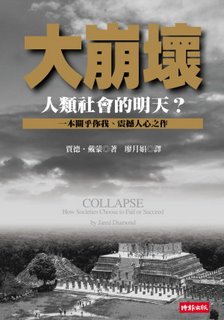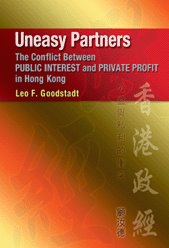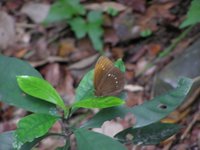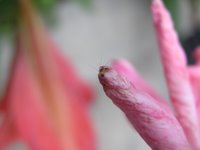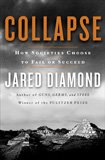
Diamond, Jared. Collapse: How Societies Choose to Fail or Succeed. New York: Viking, 2005.
Will our current environmental crisis lead to the economic or social collapse of civilization? In the face of patently unsustainable consumption of natural resources, and the almost complete lack of political awareness of our leaders and most of the public, is this not inevitable? Global warming is now in progress, food production per capita has been declining for decades, oil production may peak in the next five years or so, soil erosion and deforestation are rampant, water tables are falling almost everywhere that it matters.
Alas, there is no single book which really comprehensively examines these questions. But there are three books which I highly recommend to anyone who wants to study the issue, the full references for which are above: Collapse by Jared Diamond, The Collapse of Complex Societies by Joseph Tainter, and Something New Under the Sun by J. R. McNeill.
The latest, greatest, and most readable book is Jared Diamond’s Collapse. Just published early this year (2005), it is already on the best seller lists. Diamond is best known as the author of Guns, Germs, and Steel and winner of the Pulitzer Prize. In Collapse he focuses on environmental crises faced by past civilizations. Our own culture is not examined systematically, although he does discuss the case of modern Montana. For people who want to know more about what happened on Easter Island, to the Norse settlements in Greenland, or to the Mayas, this is just your book.
At the top of the list of historical examples is the story of Easter Island — probably the classic case of environmental collapse. Easter Island had a large population and a thriving economy complete with forested areas that could have provided trees for boats and supported a much higher standard of living. But through overpopulation and thoughtless destruction of the environment, the trees were all cut down, the population collapsed, and the statues left standing where they were at the time of the collapse — long before the Europeans arrived. Easter Island is only one of scenarios that Diamond considers — he also discusses civilizations from the Maya to modern Haiti. The failed Norse settlements in Greenland actually get the most space compared to any other society.
I appreciated Diamond’s analysis and I am grateful for the compelling descriptions he has of the complexity of the situations which these various ancient (and modern) societies had. There are so many books being published these days, and a lot of it is just trash — it is a waste of the paper it is written on. Here is an author who has achieved some fame with a Pulitzer prize, and probably could publish his letters to his dog if he wanted to, but instead spends his literary capital to draw attention to a problem that is clearly of the greatest significance for the future of humanity.
Some reviewers, such as Michiko Kakutani of the New York Times, have criticized Diamond for arbitrary selection of past case histories. "Why Easter Island and not ancient Rome?" Kakutani asks in her perceptive review. In the case of Easter Island, there was manifest environmental damage done by the humans; but in ancient Rome, environmental influences appear to be minimal, non-existent, or even negative, as population actually decreased in many parts of the empire toward the end.
I think this is a valid point, but misses the thrust of the book, which is to look at a special kind of collapse, the collapse due to environmental pressure, and Diamond has done a pretty good job of that. Collapse due solely to economic and political complications (ancient Rome in a nutshell) is outside the scope of the book.
Into the Twentieth Century
Diamond’s historical approach to past environmental crises leaves us with two further questions.
The first question is, what about today’s society? The failure of the Norse settlements, which at maximum only consisted of several thousand inhabitants, hardly constitutes a model for global collapse, does it? Are these "local" disasters of the past really comparable to the present?
This where Something New Under the Sun comes in. It’s not quite as popularly written as Diamond’s book, but if you want to know what happened to the environment during the twentieth century, this is an excellent history. The book conveys the overall impression, as the title implies, that so far as human alteration of the environment is concerned, something fundamentally different happened in the twentieth century, orders of magnitude greater, which makes today’s situation very different from anything we have faced in the past (and much worse). He looks at the earth’s soil, urban air pollution, global air pollution, water pollution, water diversions and mining, land use, forests and fish, urbanization, energy, and ideas. The only real improvement during the twentieth century has been with respect to urban pollution, at least in the richer countries. When this book is set against Diamond’s, we see that the same kinds of forces at work on Easter Island are at work in the world, are global rather than local, and are intensifying.
To maintain our current standard of living, we are spending down irreplaceable natural capital, and when that is gone — when the land is degraded, the groundwater pumped, and oil production declining — then we will seemingly have no choice but to fall back into barbarism, a Dark Age from which humanity may never emerge. The smart money, I am afraid, says that civilization (as we know it) will not survive. But of course, there’s no point in making such a bet since if you win, the economic system in which you might collect such a bet won’t exist.
